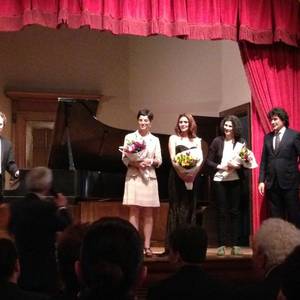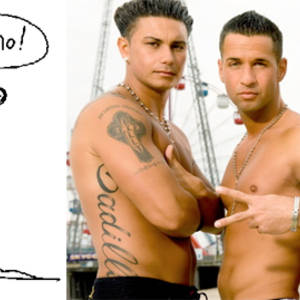Interview with Professor Robert Viscusi. "“Italian American culture without the Italian language loses its connection with the rhetorical, political, and philosophical traditions of Italian culture."
You chose: language
-
-
The Italian National Tourist Board organized “The Importance of The Grand Tour of Italy for College Students,” which took place at the Italian Academy of the Columbia University.
-
There is a public, not a private, school in California that is unique: it offers its students, beginning in kindergarten, full immersion in studies of a second language, which can be German, Spanish or Italian.
-
Italian is becoming cooler and cooler in New York 200 American children in Harlem learn Italian culture and cuisine with the celebrity chef Lidia Bastianich
-
“You seem to be proud to speak the Neapolitan dialect...‘I am Neapolitan. I am very proud of my roots and I feel an intense connection to my city... And this also means expressing myself in the dialect of our region, our native tongue. I believe that language is a sign of culture.’ ” Cardinal Crescenzio Sepe’s response to i-Italy interviewer.
-
Indigenous languages suppressed by a foreign imposed lingua franca have shown profound capacity to reinvigorate themselves. If the ‘dead national languages’ of Norway and Ireland can be revived; almost certainly the marginalized languages of Sicily and southern Italy can displace the Piedmontese imposed Tuscan lingua franca. Indeed, the displacement may already be in process. But, there is no reason to believe southern-Italian Americans will ever again hear the sounds of their historic mother tongues and know the history and culture embedded in those languages. They will continue to have their history and culture defined by mass-media and the American Tuscan-esque literati and teachers.
-
‘Forgetabout’ Verdi in Milan’s La Scala; more appropriate for southern-Italian Americans would be Michela Musolino’s "L’Evento in Memoria di Pino Veneziano" in Selinunte, Sicily. Southern-Italian Americans confuse the current northern-Italian culture meme (cultivated in public schools, Italian language courses and tourist industry) with their own southern-ancestral history and culture.
-
There is nothing new in certain segments of the community trying to impose their views of what it means to be Italian American on others. This controversy reminds me of recent tensions around the celebration of Columbus Day. On the one hand, identifying with the discoverer of their adopted land was an ideal strategy to gain full inclusion into mainstream America. But on the other hand, in today’s era of multiculturalism with a rhetoric that celebrates cultural diversity, the “discovery” of America by Columbus is equated with the beginnings of the demise of native peoples and their cultures. And there are already many Italian Americans who do not celebrate Columbus Day because of what Columbus has come to represent. It seems to me that this desire to squelch any consideration of the so-called “Guido culture” is a similar attempt by some to impose a uniform identity on a diverse group.
-
We need Italian language classes in our public schools, as well as courses in Italian/American history and culture. Both are necessary for our culture to thrive into the future.
-
Some not-too-random thoughts on the current situation of the Advanced Placement Program in Italian and who else might be able to come to the rescue…







































